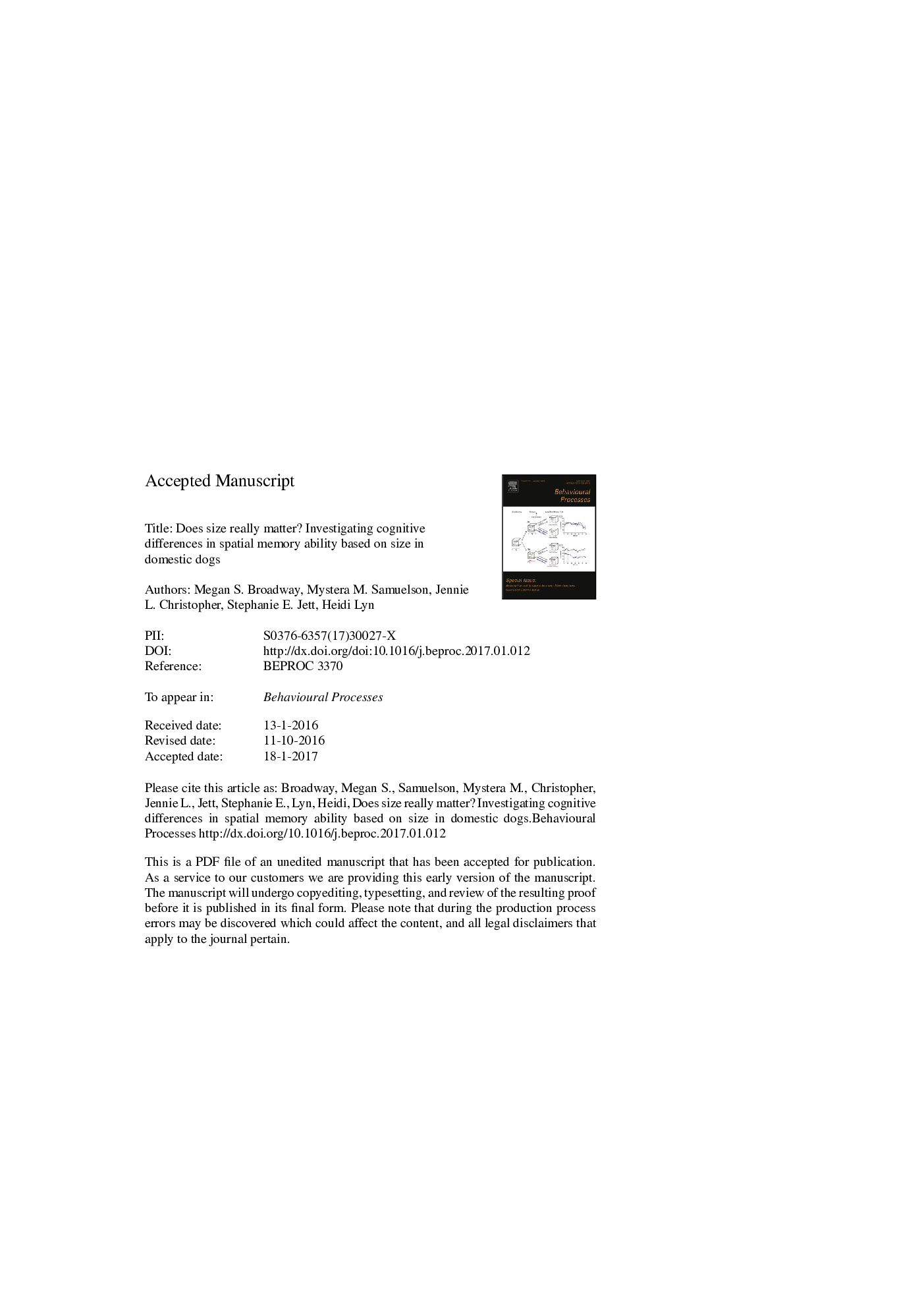| Article ID | Journal | Published Year | Pages | File Type |
|---|---|---|---|---|
| 5539643 | Behavioural Processes | 2017 | 36 Pages |
Abstract
The study of canine cognition can be useful in understanding the selective pressures affecting cognitive abilities. Dogs have undergone intensive artificial selection yielding distinctive breeds, which differ both phenotypically and behaviorally and no other species has a wider range in brain size. As brain size has long been hypothesized to relate to cognitive capacity, this species offers a useful model to further explore this relationship. The influence of physical size on canine cognition has not been thoroughly addressed, despite the fact that large dogs are often perceived to be 'smarter' than small dogs. To date, this preconception has only recently been addressed and supported in one study comparing large and small dogs in a social cognition task, where large dogs outperformed small dogs in a pointing choice task. We assessed large and small dogs using a series of spatial cognition tasks and detected no differences between the two groups. Further research is needed to clarify why our results failed to compliment previous findings. It is possible that differences found in social cognition tasks may not be due to differences in size, rather they may be based on other factors such as methodology, prior training experience, or past experience with humans in general.
Related Topics
Life Sciences
Agricultural and Biological Sciences
Animal Science and Zoology
Authors
Megan S. Broadway, Mystera M. Samuelson, Jennie L. Christopher, Stephanie E. Jett, Heidi Lyn,
